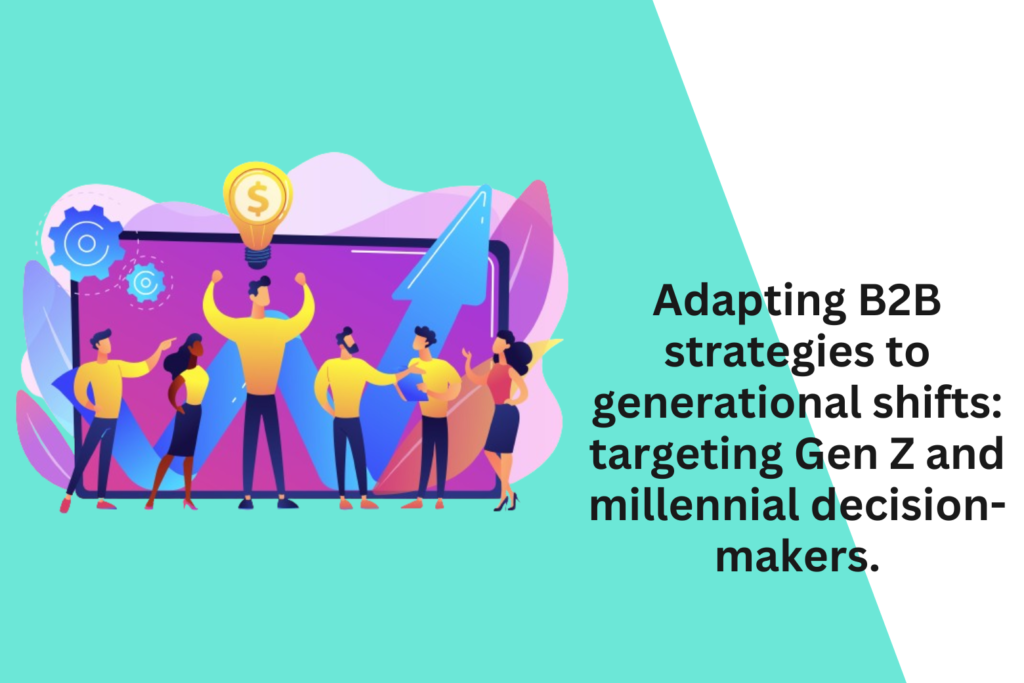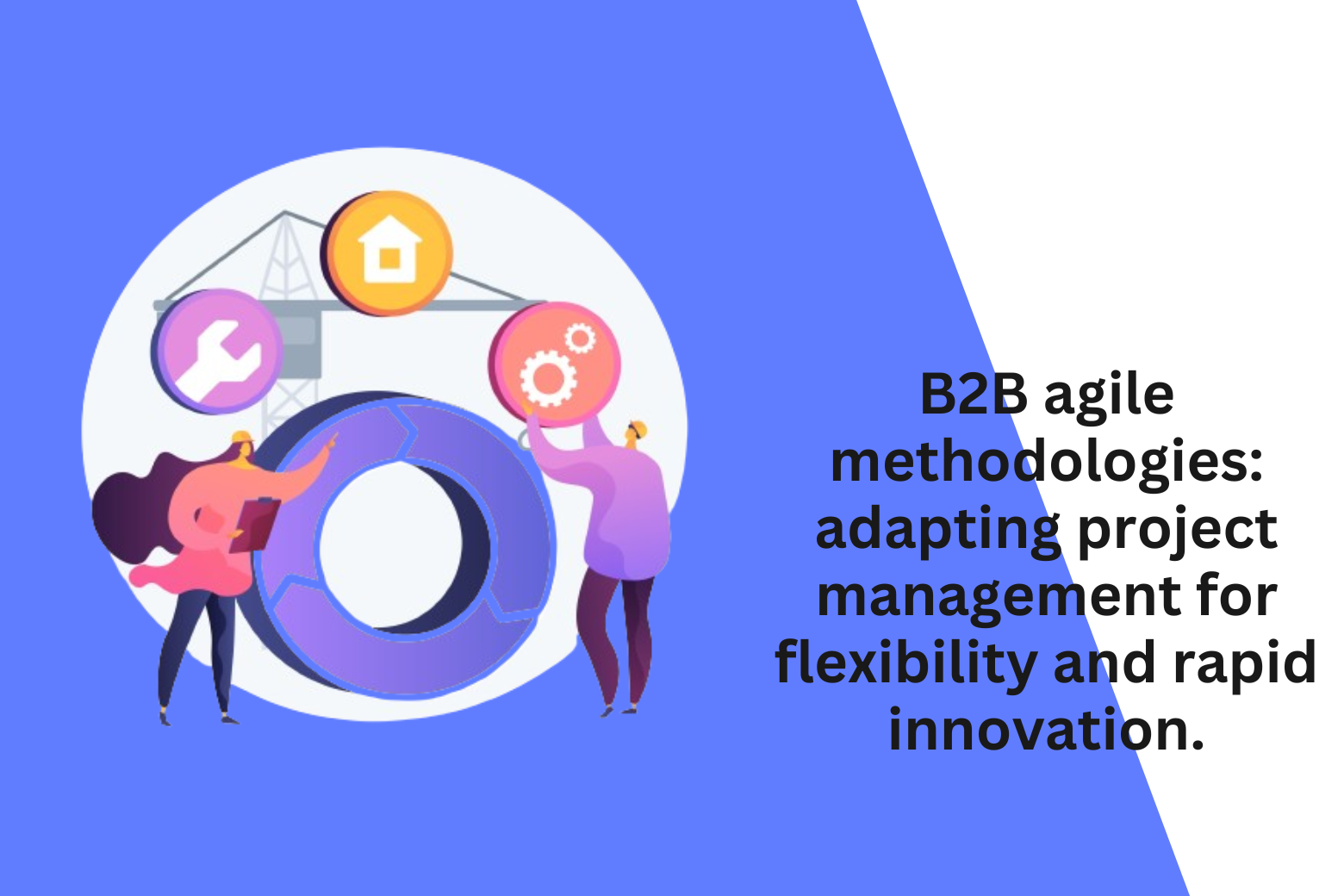
Adapting B2B strategies to target Gen Z and millennial decision-makers involves understanding the unique characteristics, preferences, and behaviors of these generations. Here are key considerations for reaching and engaging Gen Z and millennial decision-makers in the B2B space:
1. Digital-Centric Approach:
Online Presence:
- Opportunity: Establish a strong online presence through a user-friendly website, social media channels, and relevant online platforms where Gen Z and millennials actively engage.
- Benefit: Increased visibility and accessibility to these decision-makers who rely heavily on digital channels.
Mobile Optimization:
- Opportunity: Optimize all digital content, including websites and marketing materials, for mobile devices to cater to the mobile-first preferences of Gen Z and millennials.
- Benefit: Improved user experience and engagement, especially for decision-makers who frequently use smartphones.
2. Authenticity and Transparency:
Authentic Branding:
- Opportunity: Prioritize authenticity in branding and communication, as Gen Z and millennials value genuine and transparent interactions with brands.
- Benefit: Building trust and credibility among decision-makers who appreciate authenticity.
Social Responsibility:
- Opportunity: Showcase corporate social responsibility (CSR) initiatives and values, as Gen Z and millennials are more likely to support businesses with a commitment to social and environmental causes.
- Benefit: Appealing to decision-makers who prioritize ethical and socially responsible business practices.
3. Personalization and Customer Experience:
Personalized Content:
- Opportunity: Implement personalized content strategies, tailoring marketing messages and materials to the specific interests and needs of individual decision-makers.
- Benefit: Increased engagement and resonance with personalized communication.
Enhanced Customer Experience:
- Opportunity: Prioritize a seamless and user-friendly customer experience across all touchpoints, acknowledging the high expectations for convenience and efficiency.
- Benefit: Positive experiences contribute to brand loyalty and satisfaction among Gen Z and millennial decision-makers.
4. Visual and Interactive Content:
Video and Visuals:
- Opportunity: Utilize video content and visually appealing materials to capture the attention of Gen Z and millennials, who gravitate towards visual and interactive content.
- Benefit: Higher engagement and retention of information through multimedia content.
Interactive Platforms:
- Opportunity: Explore interactive platforms, such as webinars, live streams, and virtual events, to provide engaging and participatory experiences for decision-makers.
- Benefit: Fostering active participation and interest in B2B interactions.
5. Flexibility and Agility:
Adaptability:
- Opportunity: Demonstrate agility and adaptability in response to market trends, technological advancements, and changing preferences among Gen Z and millennials.
- Benefit: Staying relevant and appealing to decision-makers in dynamic and rapidly evolving business environments.
Flexible Communication Channels:
- Opportunity: Utilize a variety of communication channels, including social media, messaging apps, and collaboration platforms, to reach decision-makers in the channels they prefer.
- Benefit: Enhancing accessibility and meeting decision-makers where they are most active.
6. Influencer Marketing:
Industry Influencers:
- Opportunity: Identify and collaborate with industry influencers who resonate with Gen Z and millennial decision-makers, leveraging their credibility and reach.
- Benefit: Gaining trust and visibility through influencer partnerships.
Employee Advocacy:
- Opportunity: Encourage and facilitate employee advocacy, as decision-makers may be influenced by the authentic voices of a company’s own employees.
- Benefit: Building credibility and humanizing the brand.
Conclusion:
Adapting B2B strategies to target Gen Z and millennial decision-makers requires a nuanced understanding of their preferences and behaviors. A digital-centric, authentic, and personalized approach, coupled with an emphasis on visual and interactive content, can enhance engagement and resonate with these influential decision-makers. Staying agile, socially responsible, and leveraging the power of influencers contribute to a comprehensive strategy that aligns with the expectations and values of Gen Z and millennial B2B decision-makers.



